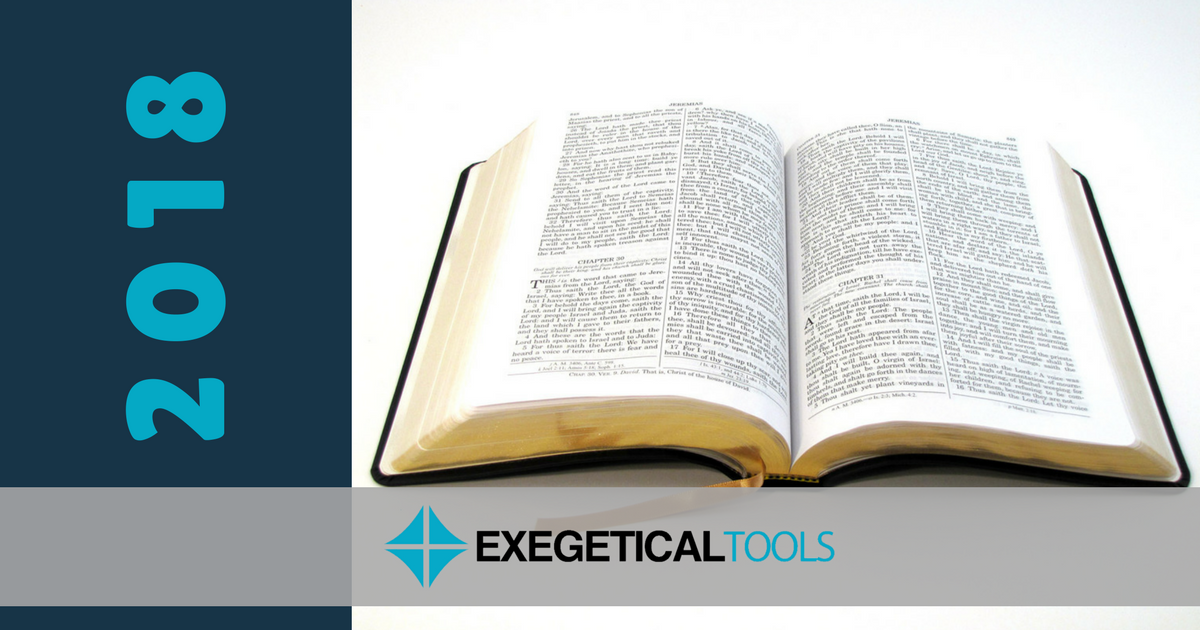
The only thing worse than being forced to learn languages is learning them and then losing them.
It’s difficult, though, to maintain multiple languages in the long-run. I’ve been required (and, thus, this is not a boast) to learn six languages throughout my education. I had to learn Spanish in 7th-11th grade. I learned Greek and Hebrew during my MDiv. Since I knew I would need them for my PhD exams, I learned French with some extra elective hours during my MDiv (and use a little for my ThM thesis to try to stay fresh) and then learned German during the summer before entering my PhD program.
(I took the Erasmus Academy course with Ron Ditmars and, as a webinar class, it was fantastic and I recommend it highly. Tell him I sent you – yes, I get some cash, but I would tell you to take it even if I didn’t)
Finally, for my sixth language, I was required to learn Aramaic during my PhD studies (and am very glad I was; you all should too!).
Now, I practice English daily, so no problem keeping up that seventh language. But how in the world does one keep up six other foreign languages, three of them dead, and the other three spoken in cultures far from me?
I came up with a study regimen for 2018 to help me maintain my languages, and I suppose my writing about them here is my way of making public my plan so that my future self is desperately shamed if I fall off the wagon! Feel free to ask me in a few months how my language study is going so I will have some accountability.
I use the ESV Study Bible reading plan each year. It has three OT readings and one NT reading each day, with the OT readings divided into the Psalms and Wisdom Literature, the Pentateuch and History of Israel, and the Chronicles and Prophets. It has some oddities, such as working through the psalms twice, going through the Proverbs 1-2 chapters at a time (way too fast!), and going through Luke twice, but I still enjoy it as the best reading plan for me.
I started this reading plan before I knew any biblical languages and read it all in English. Once I learned Greek, I started reading a sentence or two in Greek from the NT, and then a paragraph or two, and eventually most of the NT readings (except the harder books). Now, I read the majority of the NT readings in Greek. I don’t need to do so to maintain my Greek necessarily, but I do it because I’m able to read the NT in Greek and want to read the original.
But I also use the reading plan to help maintain my languages, and am doing so in a systematic way this year. First, let me note that I don’t hold to a dichotomy between academic and devotional study of the Bible. I believe my devotion to God relies on knowing him truly, and knowing him truly depends on my accurate interpretation of Scripture. So conflating my language maintenance with my devotional Bible reading presents no problem for me. If it does for you, then you might want to completely ignore my methods, and I won’t blame you.
Now, this year I am emulating the late, great William Carey, who learned more than a dozen languages and maintained them by creating a schedule for practicing his different languages (or dialects) on different days. In that spirit, I’ve chosen to practice one language a day, Monday through Friday: Hebrew, German, French, Aramaic, and Greek. Here’s how I’m doing it.
- On Monday, I’ll read one of my three OT sections in Hebrew. I’ll also do some paradigm and vocabulary practice.
- On Tuesday, I’ll read a couple paragraphs of my New Testament segment in German, while also reading it in Greek to check the German translation for accuracy. For all of this, I’m using BibleWorks 10, which allows me to set all these translations on top of one another.
- On Wednesday, I’ll do the same for French as I do for German.
- On Thursday, I’ll read everything in English but then spend probably thirty minutes reading some biblical Aramaic, practicing flash cards, and taking some notes (which I hope to use some day for teaching Aramaic).
- On Friday, I’ll read the NT segment in Greek and read through portions of various Greek reference works that I own. If you need some help working through Greek to regain, retain, or improve it, check out our Colossians videos.
Saturday and Sunday I won’t be in the office with all my Bibles and resources, so I’ll probably read on my tablet at home, all in English. I could also practice any language I wanted on those days, but I’m most likely to grab my NA27 and read ahead in my NT segment since that would be easiest (and I’m most able to do that while my infant cries and my toddler jumps on me).
So, that’s my regimen for 2018. What do you think, and who’s gonna join me?

4 comments